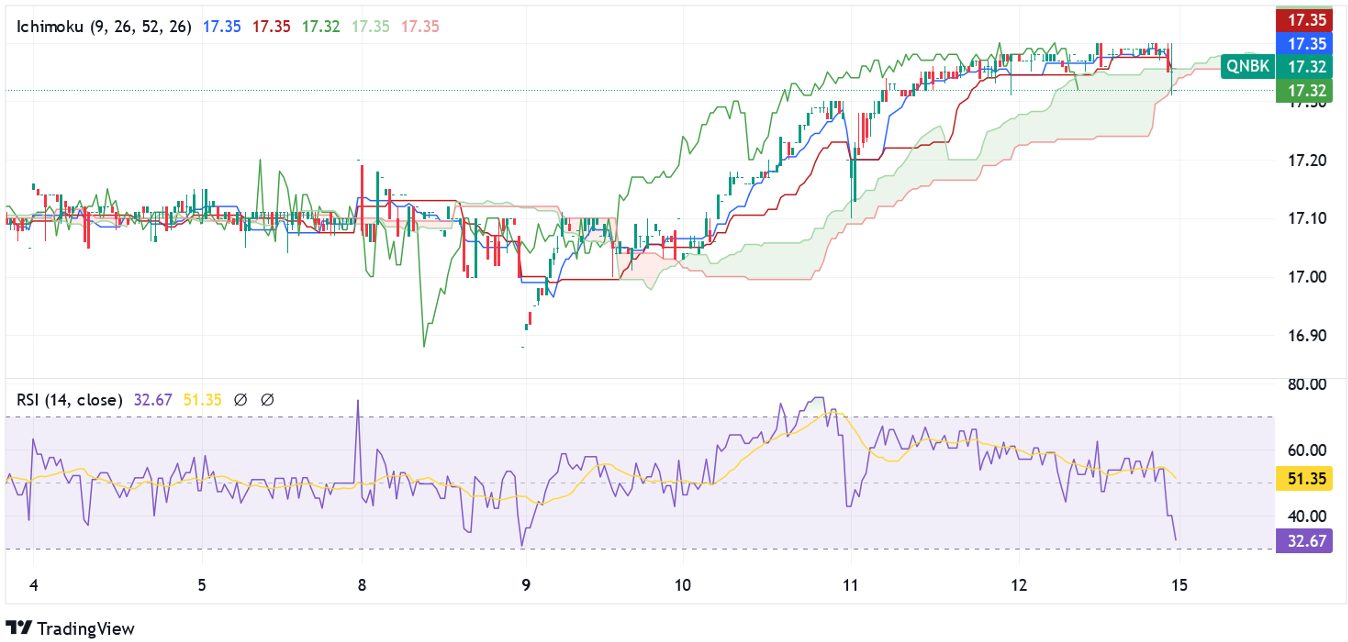CFD Trading In Qatar



Contracts for difference (CFDs) allow traders to speculate on financial markets without having to own the asset. This can make trading simpler and more cost-effective than purchasing the underlying securities themselves.
In Qatar, interest in financial instruments like CFDs is growing thanks in large part to its enormous wealth. Colossal oil and gas reserves mean that the Middle Eastern country is one of the world’s wealthiest.
This guide will tell you everything you need to know to begin CFD trading in Qatar. It’ll explain how these financial derivatives work, the different kinds that are available to traders, and discuss the regulatory protections and tax charges that investors can expect.
You’ll also see what a CFD trade involving a popular local banking stock might look like.
Quick Introduction
- Qatar’s traders can trade CFDs based on stocks, share indices, commodities and other popular assets. However, trading contracts based on cryptocurrencies is forbidden.
- Individuals pay 0% personal income tax on their profits, including CFD activities, which makes the Middle Eastern nation a popular trading location.
- Financial markets are regulated by the Qatar Financial Centre Regulatory Authority (QFCRA) and Qatar Financial Markets Authority (QFMA), although limited protection versus other regions means traders often use brokers authorized by reputable overseas regulators.
- CFD traders regularly use leverage to control larger positions. This can amplify profits or exacerbate losses, so individuals following this strategy should tread carefully.
Best CFD Brokers In Qatar
Through hands-on testing, we've pinpointed these 4 CFD trading platforms as the top choices for traders in Qatar:
How Does CFD Trading Work?
Dealing CFDs has advantages and disadvantages. Exchanging these derivatives can be simpler and cheaper than trading the underlying assets themselves.
However, the frequent use of leverage also makes them high risk, as does the fact they’re traded over the counter rather than on regulated exchanges.
Here’s how they work…
Let’s say I wish to trade the Qatar Exchange (QE) Index, the country’s benchmark share index. This comprises the 20 largest and most liquid companies on the Qatar Stock Exchange (QSE).
If I think the QE Index will rise in value, I can choose to buy a related CFD that will move in line with the underlying asset. If the trade requires me to place a margin of 15%, and each contract has a purchase price of 10,650, I’ll have to deposit 3,195 Qatari riyals (QAR) to acquire 2 contracts (10,650 per contract x 2 contracts x 15%).
Now let’s assume the QE Index appreciates to 10,700. Were I to close my position at this point, my total profit would be QAR 100 (50 per contract x 2 contracts).
On the other hand, had the index dropped to 10,600, I’d make a loss of QAR 100 (50 per contract x 2 contracts) if I then closed my trade.
Margin allows traders to control larger positions with less capital. It is the minimum balance required for an individual to open and maintain a leveraged trade.Using leverage is a double-edged sword. While it can inflate profits, it can also exaggerate losses if the market moves unfavourably. For this reason, only experienced traders should attempt trading with borrowed funds.
What Can I Trade With CFDs?
The range of contracts individuals in Qatar can buy and sell will depend on the broker they use. Broadly speaking, the following instruments are currently available:
- Stock CFDs: Investors may be able to trade a variety of local shares such as banking group QNB, conglomerate Industries Qatar, and telecoms provider Ooredoo Qatar. Low liquidity and availability issues, however, mean that Qatari traders usually prefer to trade CFDs linked to European, US and Asian stocks. Weak liquidity can make buying and selling financial assets more difficult and, due to wider bid-ask spreads, more expensive. Market volatility also tends to be lower, resulting in fewer trading opportunities.
- Index CFDs: While local indices can be traded with CFDs, deeper liquidity means traders typically opt for derivatives linked to major overseas indexes like London’s FTSE 100 and New York’s S&P 500.
- Forex CFDs: Contracts are available that pit the QAR against a basket of other currencies. Such pairings include the QAR/EUR (against the euro), QAR/USD (against the US dollar), and QAR/SGD (versus the Singapore dollar). But as with share CFDs, derivatives based on major currency pairings (like the EUR/USD) are most popular.
- Commodity CFDs: Qatar’s significant fossil fuel reserves make it the world’s sixth-largest natural gas producer and, to a lesser extent, a substantial oil producer. Local traders deal associated CFDs along with those linked to other major commodities including coffee, gold, sugar and copper.
To curb criminal activity, the practice of dealing in crypto CFDs like Bitcoin is illegal in Qatar.According to the Qatar Financial Centre Regulatory Authority (QFCRA), the ban on virtual assets includes “the exchange or transfer of virtual assets, or the exchange between virtual assets and fiat currencies” and “anything of value that acts as a substitute for currency, that can be digitally traded or transferred and can be used for payment or investment purposes.”
Is CFD Trading Legal In Qatar?
Yes. Financial markets like CFDs in the Qatar Financial Centre (QFC) are regulated and supervised by the QFCRA, whose stated objective is “the promotion and maintenance of efficiency, transparency and the integrity of the QFC,” a special economic zone in Doha designed to attract financial services providers, companies and investors.
Its everyday activities encompass “the prevention, detection and restraint of conduct which causes or may cause damage” to the zone’s reputation. Its purview includes imposing fines and other sanctions on actors it claims to have acted improperly.
The Qatar Financial Markets Authority (QFMA) is responsible for regulating and overseeing financial market activity outside the QFC.
While the QFCRA doesn’t provide such a facility, the QFMA provides lists of licensed individuals and companies on its website.
Qatar’s official status as an Islamic country means financial markets must adhere to strict Sharia principles. One restriction involves the payment of interest (riba), which means brokers are forbidden to pay or charge interest on positions held overnight.
Many traders in Qatar prefer to use CFD brokerages authorised by reputable overseas regulators like the UK’s Financial Conduct Authority (FCA), Japan’s Financial Services Agency (JFSA) or the European Union’s European Securities and Markets Authority (ESMA).
Is CFD Trading Taxed In Qatar?
While the tax system in Qatar like many other Gulf countries is very advantageous to individuals, who often pay no tax, some forms of income including profit from trading securities are liable to a tax rate of 10% or more.
Talk to an accountant or tax adviser in Qatar to ensure you’re aware of all the relevant regulations from the General Tax Authority (GTA) for your income.
A CFD Trade In Action
Now you have the basics, let’s consider what a CFD trade involving banking giant QNB might look like.
The Set-up
Bank shares are extremely sensitive to interest rates. Typically speaking, they prefer higher central bank lending rates due to the boost this gives to their net interest margins (NIMs).
The NIM is a key measure of profitability that shows the difference in interest that banks charge borrowers and what they pay out to savers.
My plan, then, is to trade a QNB CFD around the time that the US Federal Reserve makes its latest interest rate statement. More specifically, I’m expecting interest rates to be cut by 25 basis points, to 4%. This is less than the 50-point reduction that financial markets are expecting.
If I’m right, the share prices of local banks like QNB could increase.
The direction of US monetary policy is critical for banks in Qatar. This is because the QAR is pegged to the USD, meaning the Qatar Central Bank (QCB) will adjust its own interest rates according to what the Fed does.
I conclude that a 25-basis-point-cut is likely after carrying out extensive fundamental analysis. This includes studying recent GDP data and labor statistics from the States, poring over minutes from Federal Reserve meetings, and studying recent reports from key economists.
Before placing my trade, I also need to carry out technical analysis to identify entry and exit points. Studying the charts for patterns, indicators and trend lines is essential for fast-paced dealing strategies like day trading.

The Trade
With my background work done, I’m now ready to place my CFD trade. I open my trading platform at 21:50 Arabian Standard Time (AST), which is 10 minutes before the Fed is due to make its rate statement.
At this time, the QNB CFD I’m seeking is trading at QAR 17.41. So I place my trade in two steps:
- Creating a take profit order at QAR 17.63.
- Inputting a stop loss instruction at QAR 17.31.
These risk management tools are essential for short-term traders. They function by closing my position when the contract reaches either my take profit or stop loss order, whichever occurs first. Such devices allow traders like me to effectively secure profits or minimize losses.
I decide to purchase 1,000 contracts using margin of 15%, which leads me to depositing QAR 2,611.50 in my trading account (QAR 17.41 per contract x 1,000 contracts x 15%).
Shortly after I’ve placed my trade, the Fed announces an interest rate cut of 25 basis points, as I’d expected. My QNB CFD subsequently rises in value and after 27 minutes hits my take profit order at QAR 17.63.
With this trade, my total profit comes out at QAR 220 (QAR 17.63 – QAR 17.41 x 1,000 contracts).
Many international brokerages allow trades using the QAR instead of a major overseas one like the euro or US dollar. This can lead to simpler administration for traders and a reduction in dealing costs.Discover DayTrading.com’s pick of the top brokerages offering QAR-based accounts.
Bottom Line
Qatar’s strong economy, low tax regime, and recent financial market reforms mean the popularity of CFD trading is taking off.
Trading is regulated inside and outside the QFC, although many of the country’s traders prefer to use brokerages approved by overseas regulators.
The use of leverage is also extremely popular, although the practice of using borrowed funds should only be attempted by seasoned, risk-tolerant traders.
Check out DayTrading.com’s list of the best CFD trading platforms if you’re ready to start trading.
Recommended Reading
Article Sources
- GDP per capita, current prices – International Monetary Fund (IMF)
- Qatar Stock Exchange (QSE)
- Total energy production from natural gas 2022 – US Energy Information Administration
- Qatar Financial Centre Regulatory Authority (QFCRA)
- Qatar and Cryptocurrency – Freeman Law
- Qatar and cryptocurrency: A cautious relationship – Doha News
- Qatar Financial Markets Authority (QFMA)
- Qatar - PwC
- General Tax Authority (GTA)
- Qatar Central Bank (QCB)
- Arabia Standard Time – timeanddate.com
The writing and editorial team at DayTrading.com use credible sources to support their work. These include government agencies, white papers, research institutes, and engagement with industry professionals. Content is written free from bias and is fact-checked where appropriate. Learn more about why you can trust DayTrading.com



